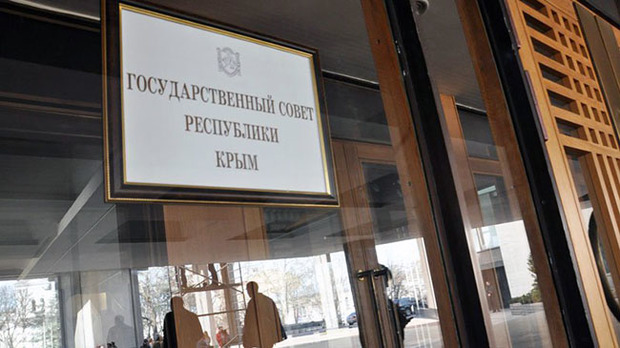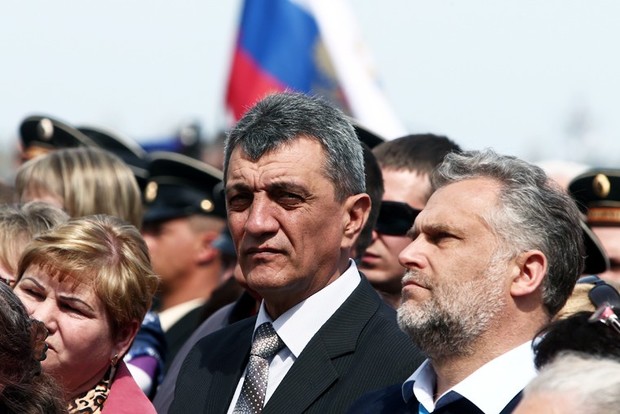‘The integration process of Crimea has not completed. It will take about three years’
Crimea: protracted integration into the Russian Federation and political scandals before the Duma elections
Two years ago, Russia has grown with two new regions – the Republic of Crimea and Sevastopol. The current leadership of the peninsula have to solve not only the problems that have accumulated for 60 years as part of Ukraine but also the integration in the Russian legal space. A Crimean political scientist Ivan Mizyukho in his column tells about the conflict of the elites on the peninsula, believes that the current political crisis is highly undesirable for 'the party of power' on the threshold of elections to the State Duma.
Fatal mistake of 1954
Crimea is not simply returned territory of Russia, which has the sacred significance for the Russian statehood but it is also two new subjects of the Federation that for more than twenty years used to live under other laws in different from the Russian political reality. National historians, speaking of the 23-year existing of Crimea as part of Ukraine, underestimate the period of the peninsula's stay in the Ukrainian SSR. The modern Ukrainian state is the legal successor of the UkSSR, and it turns out that Crimea and Sevastopol have been under the control of the Kiev for 60 years.
In 1954, a fatal mistake was made that led to the emergence of the 'Crimean issue' in the understanding of twentieth and twenty-first centuries. It was that time when a violent Ukrainization of the peninsula began, acquired aggressive forms already in independent Ukraine.
Two years of changes
For two years of Crimea in the Russian Federation, the peninsula suffered several so-called 'blockades' from Ukraine, to be more exact — water, food and energy ones.
The Republic of Crimea and Sevastopol turned out to be in the situation of building a new banking system, establishing new business contacts, the restructuring of the system of public administration, economy, education, and welfare. The Crimean Peninsula in a short period of time has passed a difficult and thorny path of transformation of all spheres of life in the new legal realities.
Nevertheless, the integration process is not over. By the most conservative estimate, it will take another three years, and in some areas — even longer.
Personnel problem and manual management
In the last decade, the staffing problem of the peninsula has become obvious. Russian Crimea inherited it from the previous period. The personnel issue has only worsened with the entry of the peninsula into the Russian Federation. In a short time, the Crimean bureaucracy had to master a new legal framework, to go through the special legal regulation on the territory of Crimea.
Today, they are bringing legislation of the Republic in accordance with the Russian federal normative legal acts. Thus, there will be amendments in the Crimean legislation for civil servants to prohibit the recruitment of persons without any qualification experience, that indicates that the Republic of Crimea has passed the stage of integration into the Russian legal space. Deputies of the State Council of the Republic of Crimea in their time adopted a simplified procedure of admission to civil service for the reason that the entire power vertical was built in a very short time. Besides, in Crimea, there were not the necessary amount of potential officials who would meet the requirements dictated by federal law.

'There will be amendments in the Crimean legislation for civil servants to prohibit the recruitment of persons without any qualification experience, that indicates that the Republic of Crimea has passed the stage of integration into the Russian legal space.' Photo: newsrbk.ru
At the moment, the situation in the government of Crimea is no longer what it was in March 2014. After all, Crimean officials are already employed in the legal field, and at the level of executive authorities of Federal, Republican and municipal sense there are workers who previously had worked in other regions of the country, for whom a legislative base of the Russian Federation is not new.
It is the personnel problem that forces the Crimean authorities to take 'manual solutions'. The issue with the recent corruption scandal in Bakhchisaray, an ancient town of the peninsula, the former capital of Crimean khans, forced the Republican executive power to intervene in the conflict resolution because in addition to the corruption scandal in the city there are contradictions between the municipal branches of government, fueled by local opposition.
Crisis in Sevastopol
The most patriotic city of the Crimean Peninsula Sevastopol is being integrated into the Russian Federation against the background of ongoing political crisis, which has the form of open personal animosity between the governor of the city Sergey Menyailo and the former popular mayor and ex-chairperosn of local Legislative Assembly Aleksey Chaly. Aleksey Chaly as the hero of the Russian Spring still has a high rating among the citizens. And Sergey Menyailo as the head of government has some real powers even if the conflict is with the legislative branch.
Politicians have different views on the development of the city, have different assessments of its economy and economic potential. The interpersonal conflict between Menyailo and Chaly results in apparent inhibition of socio-economic development of Sevastopol, lowers the ratings of the ruling party United Russia on the threshold of elections to the State Duma. By the way, Aleksey Chaly consistently says that he is not interested in the elections in the Russian parliament. However, his resignation from the Legislative Assembly, public statements and interviews of his supporters can be seen as preparation for the election campaign. He may not participate in the elections to the State Duma, but he definitely will take advantage of the time of informational political activity, which is typical for any election season, in order to criticize the government and personally Sergey Menyailo once again.

'Interpersonal conflict between Menyailo and Chaly results in apparent inhibition of socio-economic development of Sevastopol, lowers the ratings of the ruling party United Russia on the threshold of elections to the State Duma.' Photo: top.rbc.ru
The Sevastopol issue is being developed so that it is unlikely to be resolved in the short term without the interference of the federal government and after that subsequent personnel changes. It is obvious that the city needs political stability, like the one that prevailed in the Republic of Crimea.
Elections to the State Duma
Duma elections will be the next step of integration of the Crimea and Sevastopol in the Russian political-economic and legal space. It is important that in the lower house of the parliament there would be people who know the specifics of the new subjects of the Federation. For a long time, there will be a need for the adoption of special legislative acts regarding the Crimean Federal district.
Reference
Mezyukho Ivan Aleksandrovich – a political scientist; the president of the Crimean Republican scientific-research public organization Regional Institute of political communication.
- Graduated from Tavrida National V.I. Vernadsky University, master of political science (public administration of political institutions and processes).
- 2010-2014 – the chairperson of the Crimean Republican organization of the Union of young political scientists of Ukraine.
- 2012-2014 – the president of Public organization Regional Institute of political communication.
- 2012 – a member of the Crimean Supervisory Board 'Elections 2012' (the Supervisory Council on control over the observance of legality in the conduct of the election campaign).
- 2013-2014 – the author and presenter of the political talk show 'Otkryty format with Ivan Mezyukho' on the radio 'Krym'.
- Since 2014 – the president of the Crimean Republican scientific-research public organization Regional Institute of political communication.
- The author of several articles on socio-political themes in the Crimean, Russian and Ukrainian media.